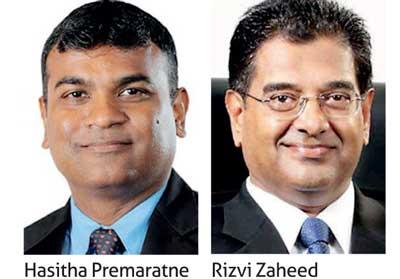24 Sep 2021 - {{hitsCtrl.values.hits}}
Agriculture and industrial sector players sought a higher allowance for Research and Development (R&D) expenses they spend for tax purpose from the upcoming budget to further incentivise the businesses to spend more on new product development, automation and digital technologies which will enhance output, productivity, markets and overall stakeholder incomes.
 According to Hasitha Premaratne, the Group Finance Director at Brandix Lanka Limited, a leading apparel and textiles exporter, higher R&D allowance would enable the industry to further move up in the apparel sector value chain by engaging increasingly in the design and development work of garments from the traditional tech pack type of work which refers to sewing for buyer specifications.
According to Hasitha Premaratne, the Group Finance Director at Brandix Lanka Limited, a leading apparel and textiles exporter, higher R&D allowance would enable the industry to further move up in the apparel sector value chain by engaging increasingly in the design and development work of garments from the traditional tech pack type of work which refers to sewing for buyer specifications.
Premaratne said higher R&D spend by the Sri Lankan apparel makers would help shift part of the garment design and development work which typically happen in expensive destinations like New York and London into Sri Lanka while reinforcing buyer relationships. “So, the research and development related work that is happening to improve product innovation on the one side, and on the other side to improve automation of the manufacturing facilities so that you can improve the productivity is an absolute must to stay competitive in the industry from a global competitiveness perspective,” he said speaking at a pre-budget forum organised by the Institute of Chartered Professional Managers of Sri Lanka to present proposals from select sectors to the budget.
According to Premaratne, at present, double deduction or 200 percent allowance is available on R&D spend on tax purposes, which is a reduction from an earlier 300 percent. Hence what the industry seeks here is a restoration of the R&D allowance to its previous level.
“Our request has been to look at the 300 percent deduction and encourage more and more R&D at not only the larger organizations but also at the medium sized organizations to drive towards that concept of automation and product development and also to attract foreign investments in these areas which will transform the apparel industry to the next level”, he added.
Echoing the same sentiments, Rizvi Zaheed, the Chairman of Sri Lanka Agripreneurs’ Forum, who also spoke at the forum called for the 300 percent tax deductibility on R&D spend made in the agriculture industry to develop agricultural technology in which Sri Lanka is lagging way behind the other markets in their application.
“As was said earlier, clearly there is a huge role for digital technology to take place in agriculture”, Zaheed said.
“Sri Lanka has to have an innovation culture in agriculture. Whilst we have a lot of tax incentives, tax holidays and low income tax for agriculture, innovation in agriculture needs to come from encouraging investments. So, the R&D spend, if it is supported with a fairly pragmatic administration through the tax department, 300 percent tax deductibility to any R&D investment in agriculture is very likely to give a huge kick start and huge take off to investments in agri-tech,” he added.
17 Nov 2024 17 Nov 2024
17 Nov 2024 17 Nov 2024
17 Nov 2024 17 Nov 2024
17 Nov 2024 17 Nov 2024
17 Nov 2024 17 Nov 2024